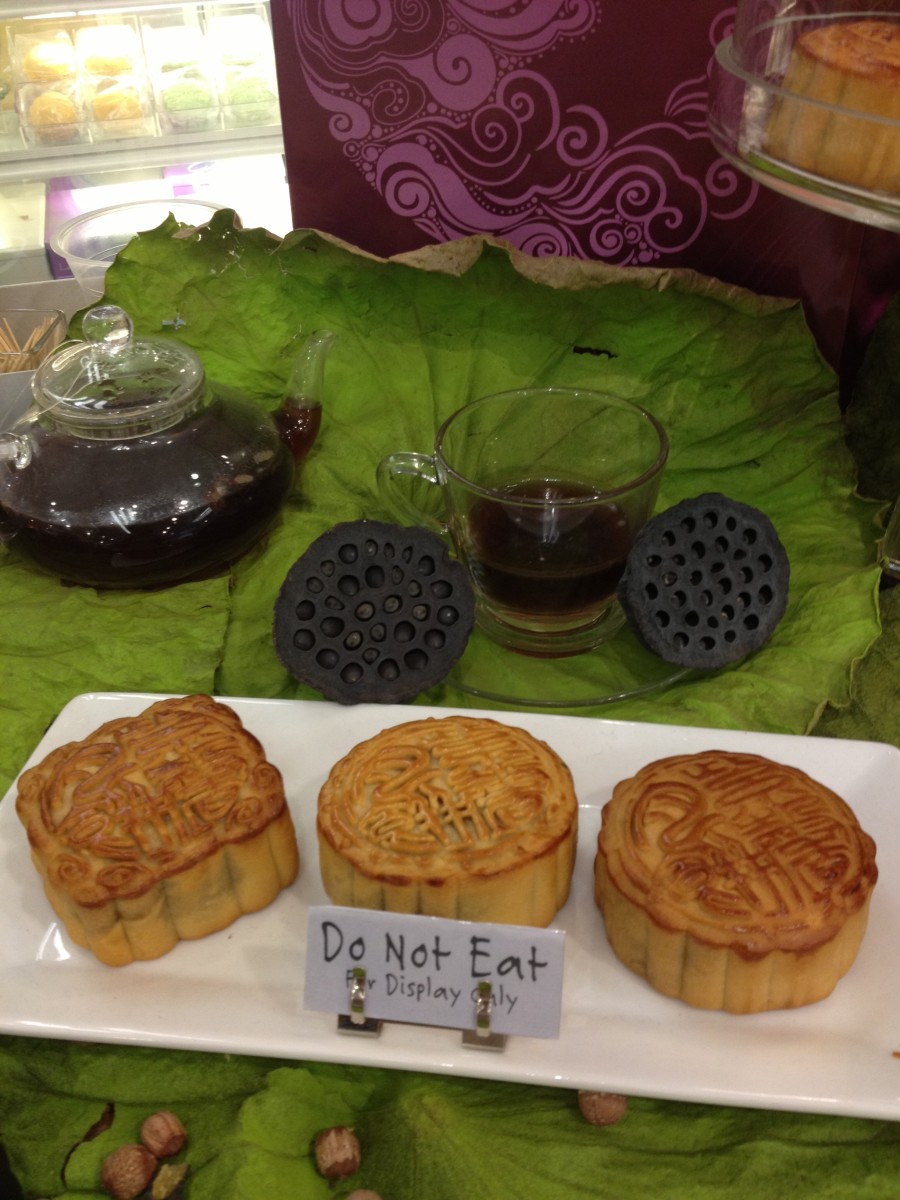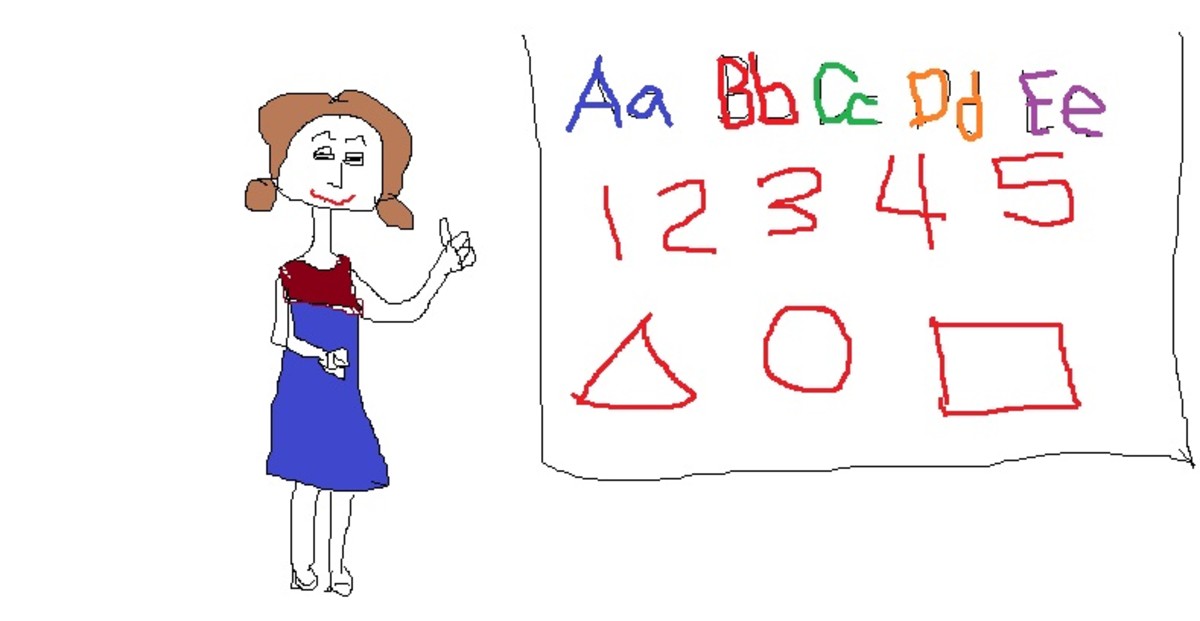THINKING ALOUD (Business & Law) Taking on Tradition: Business & Social Communities
I need to talk about Chinese culture. We have deep, strong philosophy and culture. I want to share some information, tell the worldwide audience.
— Jet Li: Chinese film actor, film producer, martial artist, and wushu champion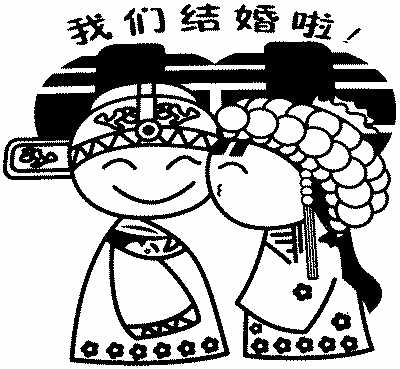
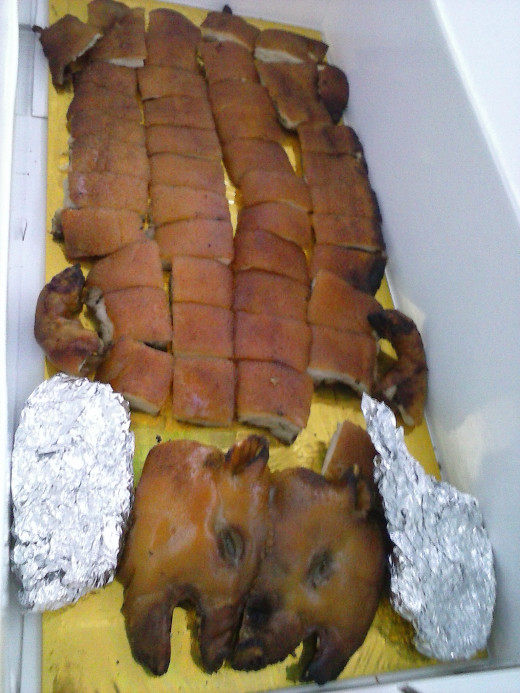
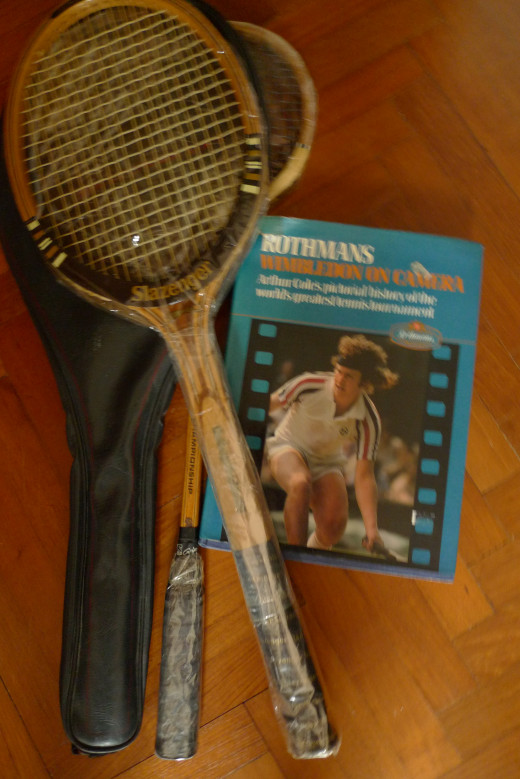
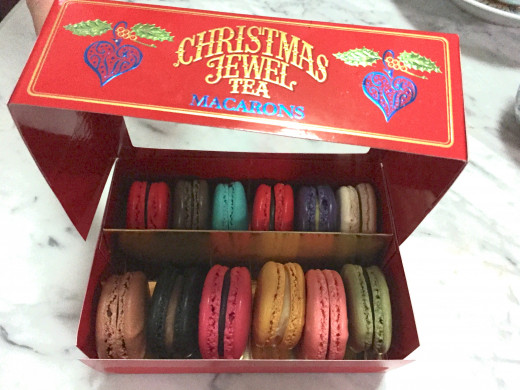

A remarkable juxtaposition of the Asian business and social communities
When Santa Comes to Town:
Today Christmas hampers as season greetings to senior executives get delivered to the offices where they worked.
This practice was not the case in my younger days. December was always been the month when companies were busy ordering the delivery of Christmas hampers to senior management executives of banks and other business houses that they had on-going commercial dealings. These Christmas hampers were sent to homes of these executives where their families could exclusively enjoy those gifts. My elder brother was a senior bank manager then and like others, he received many Christmas hampers for a good number of years. I was told bank customers had tried placing other valuable gifts in Christmas hampers which he tactfully declined. I remembered on one occasion, he found a stack of bank notes at the bottom of a gift hamper basket when opening it in our presence. Without hesitation, he had that stack of bank notes personally returned to the bank customer; driving some fifty or more miles when he was already completely exhausted from a day's work at the office. My brother is one of those straitlaced managers and a staunch Christian.
Over the Moon in Autumn:
Living in Ancient China -- the Qing Dynasty (1644-1912) revolutionists used mooncakes to spread anti-government slogans by hiding tiny slips of paper in them. These simple sweet pastries are made resembling the moon. These cakes were specially prepared as offerings to the moon goddess in Ancient China. Today, few Chinese people pray to this mystical goddess; nevertheless, all dialect-speaking communities still celebrate this festivity. Many Chinese families use the occasion to present relatives with mooncakes as a mark of respect or reciprocal thanksgiving gifts. Now business houses, particularly clan associations celebrate this mid-Autumn festival with an evening of singing, dancing and feasting to foster greater business kinship among members and associates.
Today this festival has evolved into a multi-million business that enables eateries, bakeries and hotels do a roaring business in the month of August in the Chinese calendar. These outlets do not bake them but outsource the making of mooncakes to central bakeries producing them the traditional ways. In truth, they taste the same -- the Cantonese version -- for different varieties made from lotus seed paste or other types of fillings. In the old days of the early Chinese migrants to the Straits Settlements, every dialect group had their own special recipe. But when these cakes get packed into specially designed boxes and marketed by different retailers, prices vary. Is there no market transparency on prices? No, everyone buying mooncakes knows the price differences but the name of the outlet does make a difference, especially to people in commerce buying them as gifts for their business customers. Goodwood Park Hotel, Peach Garden and St Regis Hotel Singapore will price their mooncakes at the top end of the scale. Gifts from these high-end outlets may be a good way to make customers feel that their support is important to your company now and in future. According to Chinese social norms the monetary value attached to a gift symbolizes the importance of a relationship. There is nothing wrong with this way to show appreciation for business done. But some corporate houses have gone a little further. Unlike the revolutionists of Ancient China, gold, diamond or other jewellery were hidden in the mooncakes. These were acts of bribery; and these stories may not be fictions told to add flavour to the festivity. That was then, this is now.
Nevertheless, the Mid-Autumn festival will remain a valid excuse for business houses to entertain and show appreciation to their important business supporters.
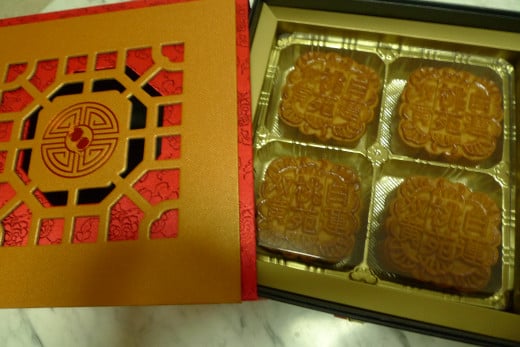
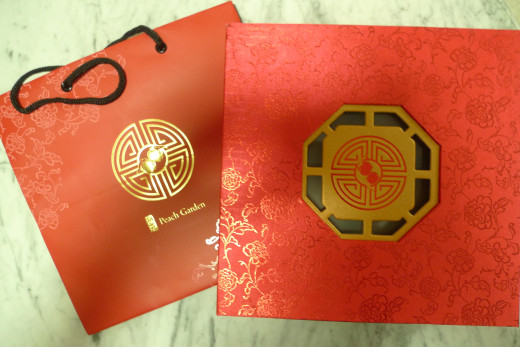
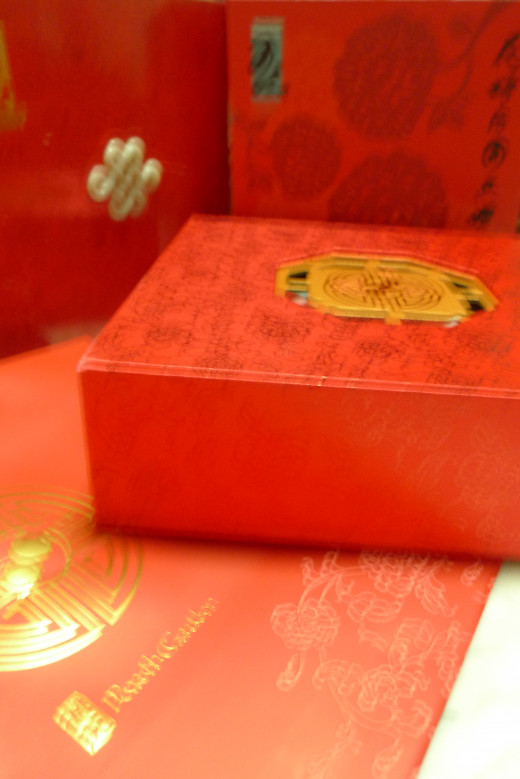
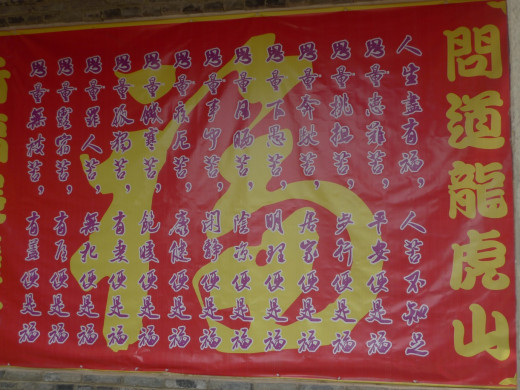
A Community taking on Traditions
A Personal Observation: chen rong
I want to talk about Chinese traditions and culture, but my thoughts seem to be straying toward the Australian Open 2014. There are parallels between this sporting event and Chinese traditions; comparisons that support what I have in mind to say about conventional rites. Traditions should no longer bolt down the lives of many people of Chinese descent now living in a modern world. So, do bear with this temporary diversion of thought.
Australian Open 2014
To start with, we have Ni Na from China who won the tennis championship at Melbourne two days ago, making it a third-time lucky win for her, as she had fallen in her first two Australian Open finals in recent years. Ni Na is a maverick. She defied conventional wisdom in not following the country's rigidly crafted system for tennis players representing China. She did it her own way. She showed the world she was right in what she believe in -- traditions that fail to serve us any more should give way to more new and original, not like anything seen before in dealing with present day situations.
The Australian Open itself has traditions. Some are innocuous like having players visit the local zoos and take pictures with kangaroos. I cannot fault this tradition. But the Australian Open is synonymous with summer in Melbourne. Playing tennis in January under the hot sun is a tradition that needs rethinking. Tennis is truly a test of skill, stamina and resolve. It is also a contest between skill and endurance. Tennis in not an extreme sport where variables - wind, snow, water and terrains -- are uncontrollable; and these factors, therefore, inevitably affect the outcome of the given activity. It is also not a test of endurance as the sole attribute that defines a champion. Skills and tactical plays still form the major portions of the equation. By tilting the balance with extreme weather condition taking its toll on players, it lowers the level of the contest and ruins the objectives of a Grand Slam tournament. One low-ranked player confessed that she revels in the Melbourne heat, and the long matches, and cited it as a factor in her only win over Williams, the world number one with 17 Grand Slam titles. It is not what the tournament wishes to see happening.
With sizzling court side temperature touching 42 degree Celsius, some players fainted and vomited at the Australian Open. One player collapsed and saw Snoopy in a hallucination. It was inhuman to see players passing out with heat strokes. Nobody is safe playing tennis under such conditions. No matter how good a player you are, your body might not be able to cope with such extreme heat. At last organisers realized the fallacy of sticking to traditions -- retractable roofs were closed at Rod Laver Arena and Hisense Arena show courts. Matches at outside courts were suspended at the end of their sets.
It is a nugget of wisdom that seems obvious. But if it is so obvious, are Chinese wedding couples applying it to their marriage celebrations?
Chinese Marriage Customs
Match point - game! Is a grand wedding dinner party the all-important element of a successful marriage? Think again. Some young couples may be wallowing in debt after a grand wedding ceremony. It all boils down to Chinese traditions usually endeared by parents of the wedding couple. They relish a face-saving dinner party preferably in a posh hotel ballroom with hundreds of invited guests of friends, colleagues, old and close to a century old relatives who could barely walk unaccompanied as they stumble along their way. The party bill can be insanely expensive. It should not come as a surprise the banquet bill may run into tens of thousands U S dollars even if the party takes place in lesser known hotels. The big one-night expense might have taken the bridegroom years of hard earned savings, or most likely, in borrowed money. And he has yet to pay for descent betrothal gifts for the bride's family and buying a place they can call it their home!
Everybody may seem smiling and with lots of 'yam-sings' (bottoms-up to your health) -- another tradition where friends and relatives join in for a Chinese wedding toast. It is loud and seemingly unrefined for the uninitiated -- but one tradition we should all have no problem with. However, beneath the smiles and intoxicating toasts, there may be an ill at ease feeling among those present. It is the price for coming to party. For the working and well-to-do attendees, a couple of hundreds in gift packets each is not an issue. This is not the case with those old and retired relatives. They have no income and little spare cash to set aside a decent sum on wedding gifts. Others may be living on bare subsistence wages. One thing this group of people share in common -- the fear for festive seasons and wedding parties -- and expenses they cannot afford but also cannot avoid as the full weight of traditions fall heavily on their shoulders. Having to dig their heels in, parting with their life savings can be financially painful especially when they have tried so hard to penny-pinch. The Chinese has another face-saving tradition: it is in brandishing gifts that matches the wedding's grand occasion, especially the couple or one of them is a relative. This tradition is hard to change. Its practice will continue to cause pain to those financially challenged relatives.
At the wedding party, are these relatives and older folks really enjoying themselves? No, they are present because they have to. They have to give face to the parents of the marrying couple; the young people, unfortunately, could not remember who they were, not until they were prompted. The wedding couple have their own group of friends seated together and reveling through endless singing and lengthy speeches on stage; often making jokes and recollections which only those within the inner circle of friends can understand. The others simply looked on wondering when the delayed dinner party would end. One guest-speaker was heard asking the couple to kiss on stage and she insistently asked for the 'wet, wet-ones' and seem to have taken a joke a little too far for some. This kind of wedding party is fast becoming trendy. Relatives and friends of the parents of the wedding couples should never have been invited.
It will be good if more couples tie the knot without the need for an expensive wedding party; a big expense item which they cannot afford to have one. There is nothing really wrong with what is now called a 'naked marriage’ a term referring to a couple who got hitched but waived or spend little on their wedding ceremony. I know it is in sharp contradiction to an established Chinese marriage custom. But many otherwise happy marriages were broken because of problem debts -- it must not be forgotten that there are a lot more expenses awaiting a newly married couple building up a family. Fiction will generate if newly-weds have to struggle each day to make ends meet.
Starting a marriage with little money left over from a wedding party, or worse, they are indebted to a bank or relatives who have so kindly helped to make possible the wedding celebration. In many cases, parents had to help out by footing the banquet bill. This may not be a good idea for it is prudent for the old folks to have some savings of their own for old age?
Just go on a honey moon which does not need to be expensive, nor does it need to be extensive. Perhaps have a small party inviting just friends and colleagues of the wedding couple. Leave the relatives out. Let parents arrange for themselves a smaller and less expensive private dinner party or probably home catering. There is a lesser compulsion for the retired and working class relatives some rooms to breathe when coming to deciding on a wedding present or more likely money gifts.
If you are doing all of these things already, I congratulate you. You have taken the necessary steps to make your own marriage a success. I know there are many people who will not share my sentiments. There are people with the money and they have rich relatives as well. I say nothing to their prerogative choices to live it up.
In any case, my observations are just -- well my observations thinking aloud!
READ OTHER STORIES AT:
chenrong.hubpages.com
In the decades after opening up, the West was seen as a role model and people were sending their children to piano or ballet classes...But now there is greater interest in preserving Chinese tradition and values.
— Ms Li Xiaoya, founder of Calligraphy School, Hanxiang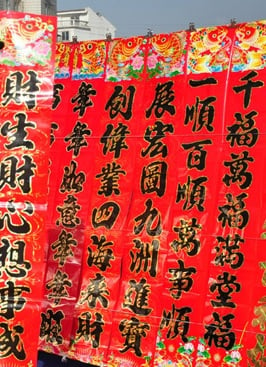
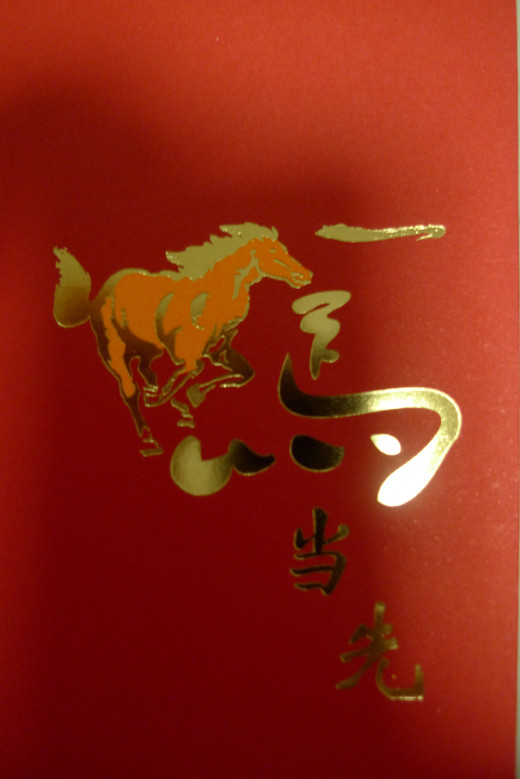
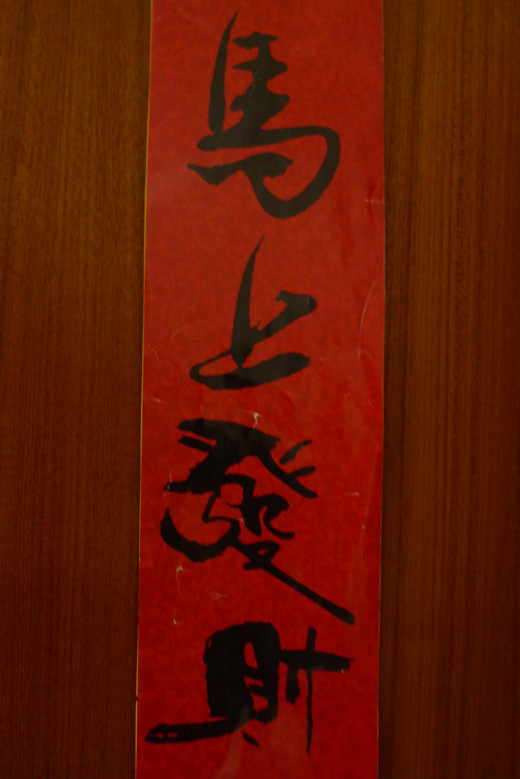
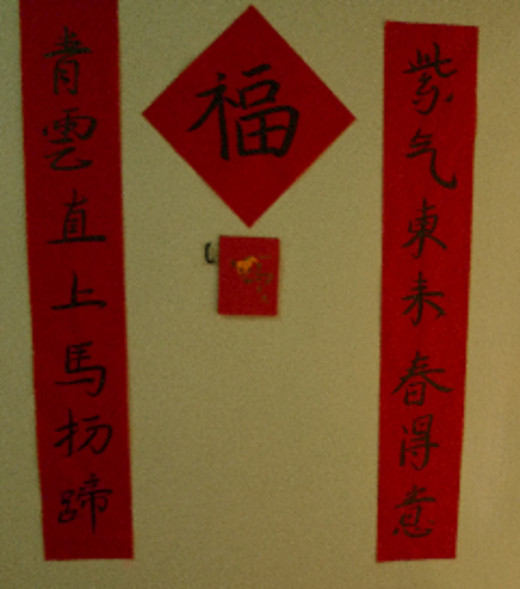
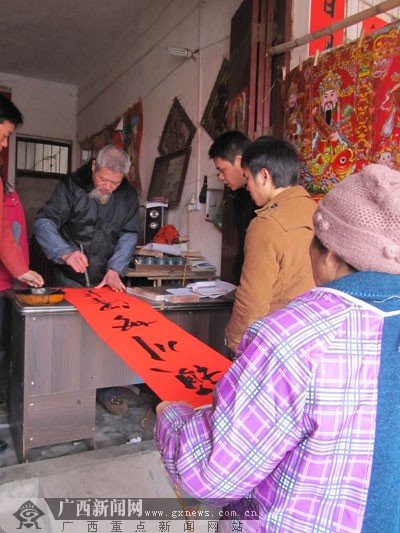
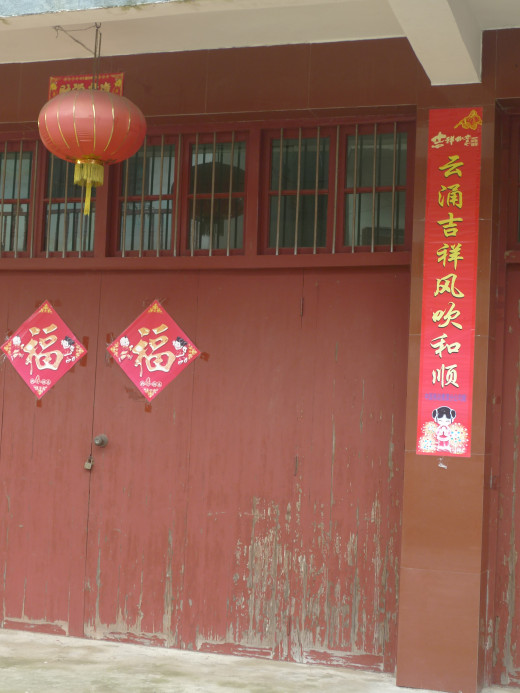
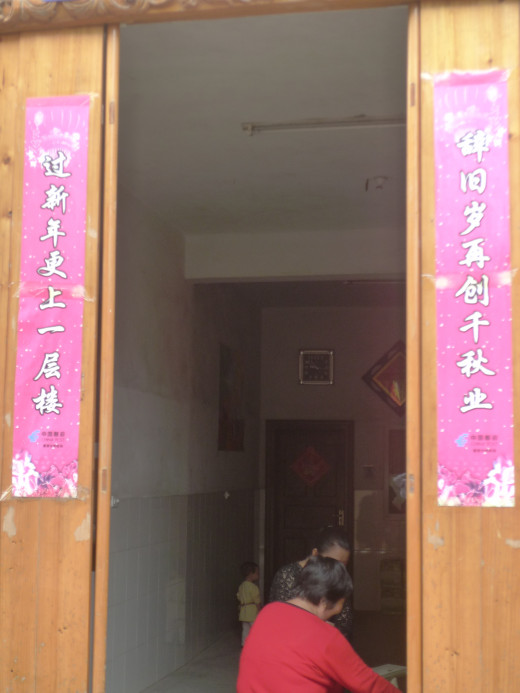
Chinese Tradition:
Couplets or Good Fortune Scrolls
Writer: chen rong
One Chinese tradition that may be gradually fading away is the hanging of good fortune scrolls or couplets (duìlián) in households during the Chinese Spring Festival, also called Lunar New Year. Red scrolls with complementary poetic couplets: one-liner on each side of the door, making a pair of lines of meter in Chinese poetry.
2014 is the year of the Horse according to the Chinese Zodiac Calendar which begins on January 31, 2014, and ends on February 18, 2015. The horse is one of the 12-year cycles of animals - a scheme and systematic plan that relates each year to an animal and its reputed attributes that may serve as guides to human activities and actions. This year, the horse will take centre-stage with couplet-writers. They will depict the horse as a clever, kind and energetic animal. Couplets can be long or short. The shortest one contains one or two characters. The longest couplets are several hundred characters in length but these are for occasions other than the Lunar New Year. Basically, the couplet structure may be parallel in meaning [zhèng duì] or antithetical [fǎn duì] in meaning. There are also other variations. However, the important thing is that couplet structure has to follow certain accepted formats such as each line having an equal number of characters, content inter-connection, tonal patterns and grouped within the same meaning or significance. It takes someone with a good command of the Chinese language to create couplets that excel in content and language, and thought provoking to readers.
For many who do not have such linguistic skills, they go about happily copying from master-writers. Writing couplets is disciplined calligraphy. It is a kind of pursuit. With regular practice in writing Chinese characters artistically, a hobbyist-writer will be able to perfect the art form over time. It has become a skill itself. More important, such a discipline is recognised as a form of self-help in character building - perseverance, patience and the ability to stay focus. The writer's wife claimed it actually helped in maintaining good blood circulation; calligraphy practice, especially the writing of New Year couplets helped to increase blood flow in her body. The writer cannot attest to it. His advice is not to stop medication for those who need it. But one thing is certain: she does not throw tantrums or lose her cool!
One can still find many couplet-writing masters at work along sidewalks in Chinese cities. It is a sad thing that there are a decreasing number of them in Hong Kong. As one travels away from mainland China to other Asian cities, the number of couplet-writers dwindles. It now reminds just a handful of them. Besides, these other masters are but copier of works of the genuine masters. These ghost-writers were once prominently found setting up make-shift stores alongside other shops and street vendors in China-towns during lunar festive periods. Once upon a time, these couplet-ghost-writers could make small windfalls during Chinese New Year periods as people fascinated by their calligraphic style would buy such artful pieces written on red papers. Couplets are usually prominently displayed on door fronts to welcome good luck.
Globalisation and adoption of western-style living in most Asian cities have eroded many established Chinese traditions. Couplet ghost-writers are now a rare breed in China-towns. Most homes now display commercialised couplets and these are basically single words or one liners -- "Good Fortune" or just "Happy New Year". This is understandable. For mass producing to gain economies of scale means the maker of such commercial pieces are restricted couplets that have gained general acceptance and, therefore, more in demand. This is not good for Chinese cultural development. Couplet writing and appreciation should be a tradition encouraged and preserved as a way of life, at least for the Chinese New Year festive days. But the rising tide of change is such that even the Sumatran tigers are holding on for survival in the remaining patches of forests on the Indonesian island of Sumatra - what with Chinese couplets?
For anyone -- just anyone, not necessarily people of Chinese descent -- who fancies Chinese New Year couplets, there are few friendly words of advice. Pasted-on or hung couplets are usually in Chinese words written vertically down. When displaying on doors or walls, the first couplet line should always be on the right side, and the second, left. If one is uncertain, it pays to ask the person who wrote or sold it to you. And if you bought one from Vietnam, South Korea or Japan, the words may not exactly mean what they say in the Chinese language, although festive couplets are inspirational and safe to buy them. Some linguistic and phonetic elements found in these foreign languages are Sino-foreign in form. They are not a strict Chinese linguistic form. Nevertheless, it is an encouraging development that cultural exchanges among these Asian countries have spread interests in Chinese couplets -- and the practice of displaying Spring Festival couplets observed as well.
To people of all races - gallop into the Year of the Horse with your Chinese friends celebrating Lunar New Year activities
READ OTHER STORIES AT:
chenrong.hubpages.com
Slurping may be a culture
In my country, back in the 1970s or earlier, menial workers were patrons of roadside stores selling porridge with assorted vegetables and meat. Many of these workers toiled for hours loading and unloading goods at Singapore harbours and warehouses. At lunch time, these workers could be seen either sitting or squatting on long benches slurping down their porridge with the help of chopsticks. Perhaps it was part of our local culture then. Today, people thought the practice was uncouth, and they now eat porridge with spoons. Slurping unknowingly stopped.
In Japan, slurping is culturally acceptable when eating ramen. Spoons have been absent from tables for many centuries before Japan opened up to the outside world. Today, this practice remains part of Japanese culture. Eating ramen outside Japan is something else because spoons are readily available.
One man's trash is another man's culture ! Cultural criticism is taboo.


